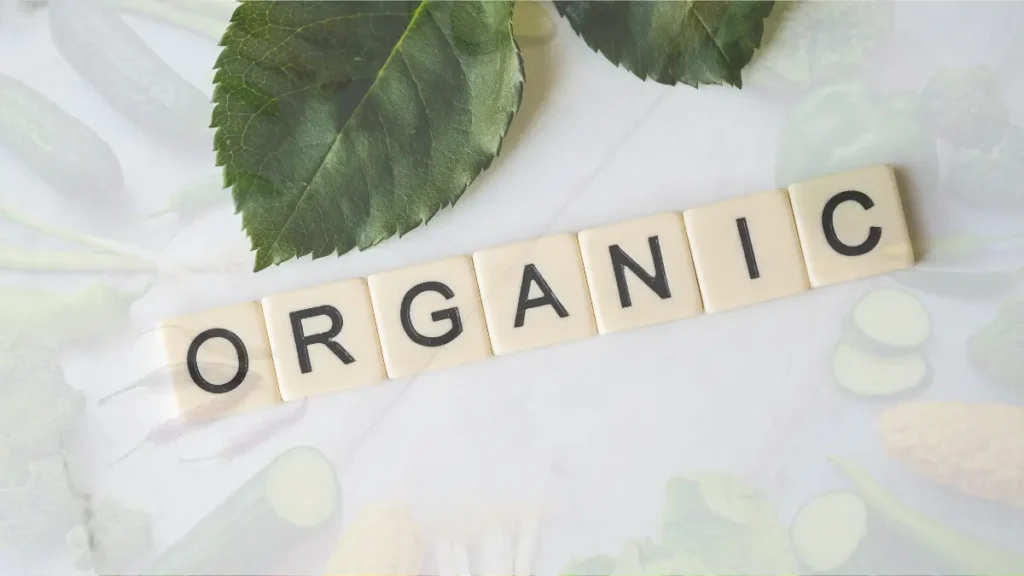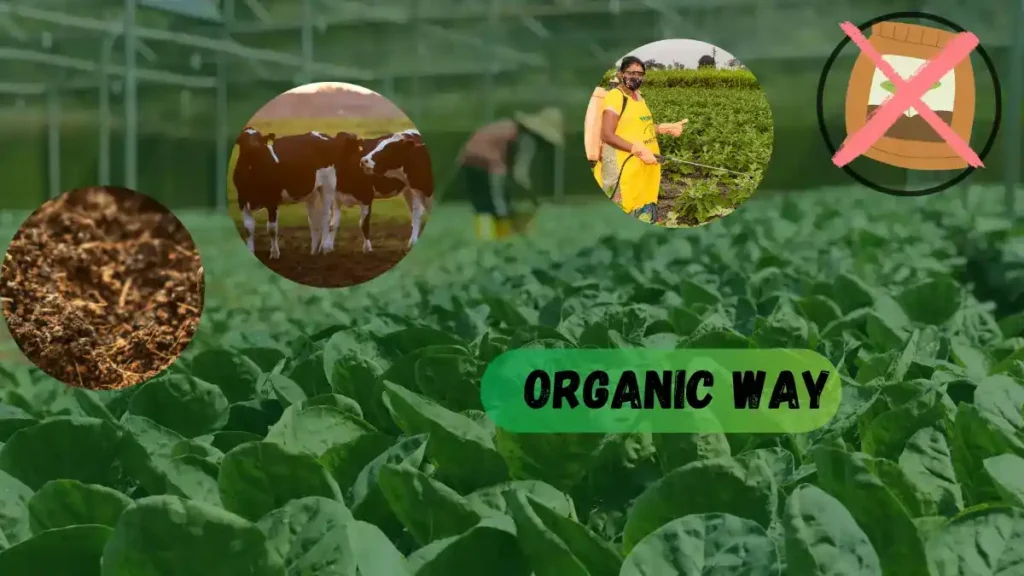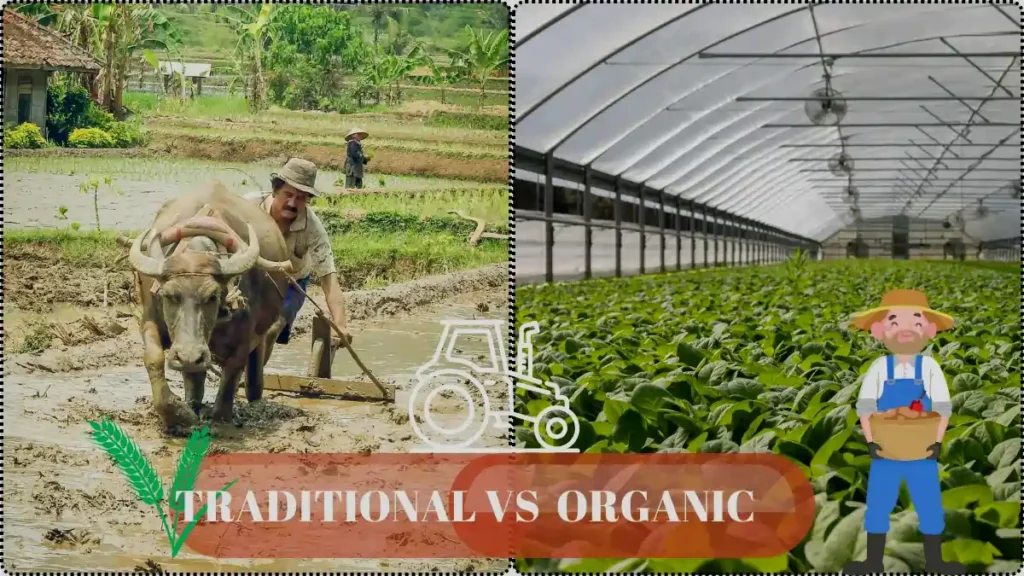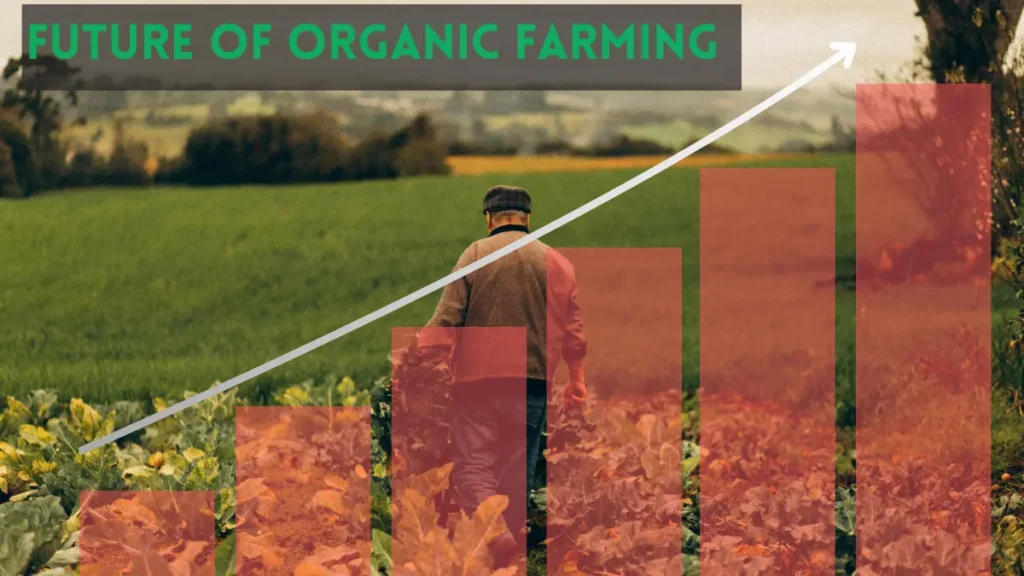Organic farming is a modern method of traditional farming. Farmers in organic agriculture use organic approaches to keep the environment healthy, such as using organic waste in the soil to keep it fertile, managing a favourable pest environment for crops and enhancing yield by adding manure to the soil.

Table of Contents
History and Development
F.H. King, Albert Howard, and Rudolf Steiner introduced the concept of organic farming in the early 1900s, in which they explained practices such as crop rotation, animal husbandry, animal manure, cover crops, and pest control.
Seeing its benefits, J.I. Rodale and his son Robert published their views in a magazine, “Organic Gardening and Farming,” in 1940. Further, the demand for organic food increased in 1960. When Rachel Carson explained how traditional farming, with the usage of pesticides, is negatively affecting our climate.
Organic food increased in demand in the 20th century due to the threat of environmental disasters caused by pesticides and artificial nutrition in the market. According to research, in the United States, overall sales benefits grew from $20 billion to $50 billion in 2019.
Practices and Principles

There are many ways to perform organic farming; we will discuss common factors that are vital:
| 1. Healthy Soil | To get a high yield and plants free from pests and diseases, it is mandatory to add organic products in soil like compost and animal manure. |
| 2. Promoting Biodiversity | It promotes biodiversity by providing diverse habitats and healthy ecosystems within the farms. |
| 3. Alternate Fertilizers | Small farmers need help buying fertilizers and other chemical nutrients to achieve a high yield; due to their low budgets, most farmers thrive on developing nutrients close to fertilizers using waste products. |
| 4. Chemical Use | Some farmers make use of chemicals to protect their crops from insects and diseases, while organic farming promotes the use of organic matter. |
Top 5 Benefits of Organic Farming
| 1 . Green Perks | Organic farming helps keep the soil healthy, sustain crop yield and reduce fertilizer use. To produce food that is healthier and free from toxicity, farmers must use organic methods. |
| 2. Health Benefits | Organic food is free from synthetic chemicals and pesticide residue, which helps individuals live healthy, nutrient-rich lives. |
| 3. Economic Benefits | Organic food is rare and highly demanded in the markets so that farmers can enjoy the premium price benefit of organic food. |
| 4. Social Benefits | If farmers introduce the concept of organic farming, it will increase the workforce in rural areas employing labor. |
| 5. Water Conservation | Organic farming is more retentive due to its improved soil structure, resulting in less groundwater dependence. It is one more critical practice for conserving groundwater, a vital natural resource of the earth. |
Top 5 Challenges Faced by Farmers in Organic Farming
| 1. Low Production Rate | In organic farming, the productivity rate is low, which is the major drawback of organic farming in terms of food security. |
| 2. High Prices | Because organic farming produces low yields, food prices are high, and labor costs are expensive. |
| 3. Limited Resources | Most farmers face problems arranging basic needs such as seeds and chemical fertilizers to sustain organic farming. |
| 4. Lack of Awareness | Although it is easy for farmers to adopt organic agriculture, they need to become aware of its benefits. |
| 5. Government Guidance | After recognizing its advantage, the government has introduced many policies to support farmers, which is beneficial by marking their food as organic food products by following government instructions. |

Conclusion
Organic farming is a better alternative to traditional farming. It offers environmental, health, and economic benefits. Although farmers may face difficulty finding resources for organic farming, it also provides a promising future. As the awareness of organic farming benefits is increasing at a high rate, we can say that in the coming years, many farmers will adopt organic farming. In today’s industrial agriculture, the need for rich nutrient food is slowly gripping consumers’ attention, and organic farming can only fulfil their demands.
What is the importance of organic farming?
Organic farming is a way to grow food in an organic manner that is healthy for individuals and the environment.
How is organic farming healthier for animals?
Organic farming promotes animal welfare and prioritizes animal health and well-being. Providing organic needs to animals reduces animals’ stress and disease.

